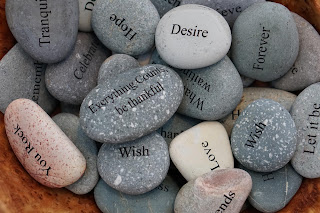Hope by the Sea wishes everyone in addiction recovery a safe and sober Thanksgiving; may your day be one of gratitude and togetherness. It doesn’t matter how long you have been in the program, even those who are still in their first year of recovery can think of ways their life has improved. Take drugs and alcohol out of the equation, follow direction, and do the work; three actions which can change everything in one’s life.
In early recovery, it’s not always easy to recognize your own progress. For many people in their first year of recovery, there is a significant amount of wreckage from one’s past to contend with, after all, addiction takes a severe toll. Working a program of recovery allows you a means to address the damage done, but it takes time. It’s paramount that one exercises patience and good things will happen; however, when the good things occur will be on your “higher power’s” time—not yours.
Today, we can take comfort in not feeling the need to control every little aspect of life. We can accept that no one (including ourselves) has all the answers, we can even take solace in the fact that if something is meant to happen—it will happen. Such realizations are something you can take stock of and appreciate; one should welcome a respite from attempting to be the grand architect of life. We all play a role in the story of life, to be sure, but we no longer have to pretend that we’re the director.
Realistic Expectations In Recovery
Having expectations of the way life should go, or disappointments in the way life didn’t go, is not a valid means of bringing about change, for change requires action. It’s healthy to dream of a bright future, although one must be careful and not allow our expectations to be a driving force. People with use disorders, even those in recovery, at times tend to react to unfulfilled expectations in harmful ways.

This Thanksgiving might be your first in recovery; which means that you’ve started the process of putting the pieces of your life back together. You are making incremental progress, and if you stick to your program lasting recovery is possible. What’s more, with each passing day you continue to get closer to your authentic self; a person who is no longer driven by fear, rather an individual powered by hope. You may not have everything that you thought you would at this point in your recovery, which is okay (progress not perfection). On the other hand, you do have your sobriety, a monumental achievement by anyone’s standards, and you have a fellowship of men and women in your life that care about your well-being.
A Thanks for the Gift of Sobriety
On Thanksgiving, we ask those of you in your first year of recovery to take a moment and write down everything you’re grateful for today. If people are on that list, particularly those who have played a role in your recovery (i.e., family, sponsor, and peers), reach out to them and share how appreciative you are to have them in your life. Expressing gratitude to others fills your heart with a sense of joy and pride, and when others feel appreciated they are likely to continue their support. Every day in recovery is a gift, and none of us made it where we are today on our own.

